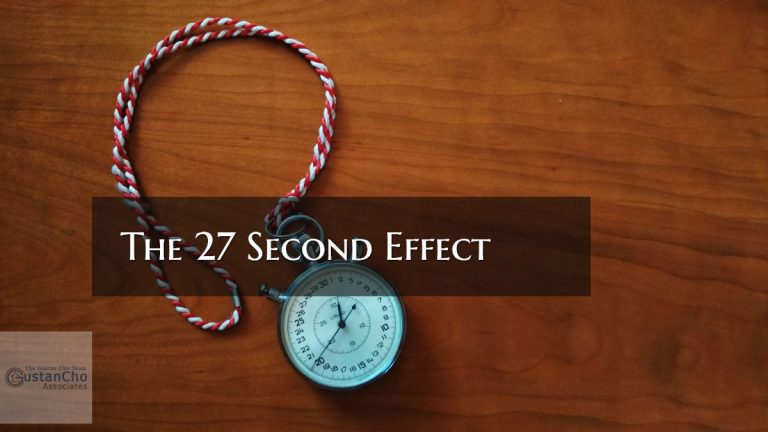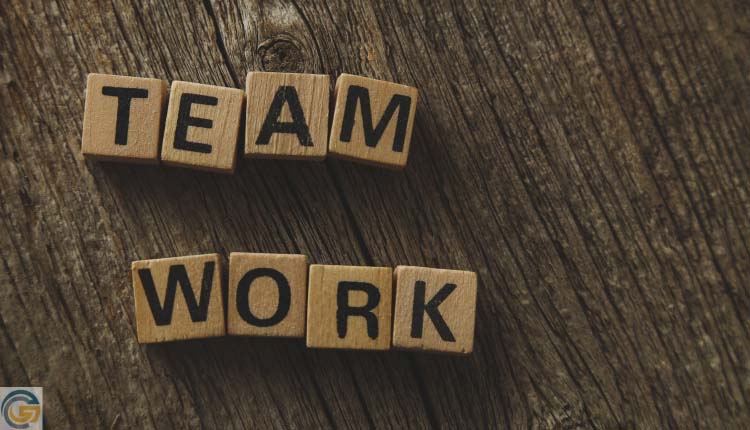This guide covers the importance of smart technology in mortgage careers. Let’s first start with the definition of smart technology. What is smart technology? Talking alarm clocks, TVs, Robots, and talking watches? Really? Alex Carlucci, a senior loan officer at Gustan Cho Associates, explains smart technology in the mortgage industry as follows:
In retrospect, it sounds more like “The Jetsons.” They were surprisingly accurate in predicting the types of smart-home devices that would make our lives more convenient and comfortable.
But today’s smart-home systems go one step further. They help provide safety and security. Many of them allow you to link safety devices such as motion and smoke detectors to your smartphone to increase your home’s security and better monitor potential damage.
Prices For Smart Technology
Prices for smart-home systems and smart technology devices have dropped dramatically over the past few years. Sapna Sharma, the Chief Technology Officer at Gustan Cho Associates, says the following on smart technology:
Smart technology for the home is becoming so mainstream that you can buy devices and systems off the shelf in many home improvement stores
What’s more, a lot of them are easy to use. Even moderately tech-savvy homeowners can install them rather easily. Flying cars that chauffeur your kids to school may be way cooler. But these high-tech devices are practical and useful in their own right. They may even help you avoid having to make an insurance claim.
Start Your Process Towards Buying A Home
Apply Online And Get recommendations From Loan Experts
Smart Technology Security
Think of these devices as a step up from a conventional burglar alarm. Take smart technology locks and garage door openers, for example. I’m not sure whether or not you remembered to lock your doors or close your garage door when you left the house. These devices allow you to do it with your phone. Ravinder Sharma, Chief Digital Marketing Director at Gustan Cho Associates, says the following about smart technology security:
Some will also open your doors and garage when they sense your phone is nearby, so you don’t have to fumble for keys or a garage door opener in the dark. “Motion detectors” …
Position these near your windows and doors and in other vulnerable spots around your house’s interior or exterior, and your smartphone will alert you when the sensors detect motion nearby. “Wi-Fi Cameras”…..Like motion detectors, these cameras can be placed around your house and connected to your smartphone so that you can monitor your home at any time. From anywhere, you can even receive an alert from motion detectors or other devices. Also available are cameras that can be linked to a doorbell so you can see who is at your door before you open it.
Smart Technology Damage Control
These devices can help you monitor conditions in your home so you can fix potential issues before they become major problems. For example: “Smart thermostats” ….
They can monitor changes in home temperatures and send you an alert on your smartphone if the temperature drops to a pre-determined setting. At that point, you can boost the temperature from your phone.
Suppose you happen to have a cabin in the mountains where temperatures dip low or a condo by the beach where temperatures are warm. In that case, you can remotely set them to the desired temperature before your arrival, all via your smartphone.
Smart Technology Leak Detectors
Place these in your bathroom, kitchen, basement, and other areas prone to water damage. They’ll notify you via your smartphone when they detect a leak. You can even shut off the water via phone. If you have Wi-Fi cameras, you can survey the room to decide what needs to be done.
Smart Smoke/Carbon Monoxide Detectors
Smoke and CO alarms work well if you’re home, but if a fire or a leak occurs while you’re away, you often don’t know until it’s too late. Smart detectors send an alert to your phone when they sense smoke or carbon monoxide so you can assess the situation via your Wi-Fi cameras or call the fire department immediately
These are just some of the “Smart Tech Devices” available to us that help make our lives safer and keep our homes secure from the unforeseen and can help prevent catastrophic events The future in technology is only becoming smarter and we need to keep up with it if we want to be up to speed with the latest and greatest in the ever-evolving world of high tech.
Smart Technology in The Mortgage Industry
There used to be a time where loan officers met clients in-person to take mortgage loan applications and collect documents. Those days are long gone. Everything in the mortgage process including closing is done electronically. Borrowers will complete online applications via a secured link. All documents need to be uploaded and done electronically
Mortgage disclosures such as Loan Estimates and Closing Disclosures are disclosed online via email. Closings are done online.
Mortgage companies will prep closing docs and email them to the title company. Wires are sent and not cashier’s checks. To be successful as a mortgage loan originator, technology is no longer a need but a must.
FAQs Regarding the Role of Smart Technology in the Mortgage Sector
Why is Smart Technology Considered Significant in the Mortgage Sector?
It reduces the human effort for hiring staff, expands the client base, enhances efficiency for giving loans to lenders or borrowers, and, most importantly, meets the regulatory requirements. Smart technology takes over and automates processes, resulting in fewer mistakes and greater accuracy.
What Advantages Does Smart Technology Present to a Loan Officer?
Time Savings:
- Automating monotonous processes such as document collection, data entry, and compliance checks.
Improved Accuracy:
- It lessens human errors in calculations, disclosures, and reporting.
Enhanced Customer Knowledge:
- Enables fast responses, customized loan options, and better communication channels.
Lead Generation:
- Tools powered by Artificial Intelligence help determine which clients slip through the cracks and assist in more effective targeting.
Real-Time Updates:
- Loan officers have insight into the status of applications and can fix problems swiftly.
Explain Loan Estimates (LEs) and Closing Disclosures (CDs) and the Role of Technology While Doing Them
Loan Estimates:
- Loan Estimates (LEs) are documents the borrowers receive within three business days of requesting a mortgage. They are intended to estimate the loan terms, loan amounts, costs, and fees that would apply.
Closing Disclosures (CDs):
- The last-minute documents before the closing, bills outlining the actual cost and terms of the mortgage, are dealt with at least three days before the closing.
Technology’s Role
Compliance:
- This ensures LEs and CDs are produced, assembled, and delivered within the legally set timeframes.
Automation:
- Tools such as loan origination systems (LOS) allow systematized disclosure updates and automatic data entry whenever changes occur.
E-Signatures:
- This enables the borrowers to electronically review and sign the disclosures, which helps reduce the time spent in the process.
What are Smart Technologies Transforming the Mortgage Industry?
Loan Origination Systems (LOS) are systems used to apply for mortgage loans and track an application’s progress through various stages.
AI and Machine Learning
This technology helps automate credit scoring and the identification of fraudulent transactions. It provides managerial personnel with predictive information and analysis to make more appropriate decisions.
Mortgages and e-Closings
This technology supports a robust, fully automated mortgage application process and a paperless closing system.
This concept allows the signing, recording, and storing of loan documents without physical presence through eSignatures, remote notarization, and safe document storage.
Customer Relationship Management (CRM) Tools
Assists loan officers in how they receive the leads, follow up contacts with potential clients, and maintain ongoing communication.
Mobile Apps
It allows borrowers to view their loans, send documents to loan officers, and communicate with them through the mobile application.
Blockchain
Proper documentation of the entire mortgage process, making it open, clear, and straightforward, provides an added level of security. This enables faster verification and lowers the chances of fraud.
How Does Smart Technology Enhance Compliance and Security?
Regulatory Compliance:
- Implicitly assist in conforming with TRID, RESPA, and other legal requirements.
Audit Trails:
- Tells the history or sequence of events related to the changes and activities undertaken for easy access.
Data Security:
- Borrowers have easy access to the information, but the sensitive data remains protected by encryption.
- Irreversible multi-factor authentication lowers the likelihood of unauthorized access.
Fraud Detection:
- AI uses algorithms to scan for exceptions and highlight suspicious and fraudulent activity.
Start Your Process Towards Buying A Home
Apply Online And Get recommendations From Loan Experts
How Does Technology Lend a Helping Hand in Enriching the Borrower’s Experience?
Efficiency:
- It makes loan application and approval processes simple.
Updates:
- Let the borrower know minute by minute-when the loan can be processed.
Availability:
- It allows the client to fill out an application and submit documents.
- Complete the loan signing with a click of a button.
Recommendation:
- AI intelligence helps suggest the type of loan a suitable borrower profile can avail of.
What Should a Loan Officer Do to be Able to Incorporate Smart Technology?
Learners:
- Learning is unlimited, so training regarding tools and systems should always be undertaken.
Employing CRM and LOS Platforms:
- Look for other tools that enhance the use of the integrated CRM and LOS platforms.
Allied with Technology-Friendly Lenders
- Ensure the lender you partner with has a good sense of technology usage.
Timeless Learning
- Ensure that there is an understanding of technologies and trends for continuous improvement.
How Does the Increased Technology Integration Create Challenges for Loan Officers?
Increased learning space:
- The time to set up and learn new technologies can eat into efficiency.
Synthesizing challenges:
- Ensuring the various systems can work rightly together can be challenging.
Costs of incorporation:
- Advanced tools come with high costs.
Data Management:
- Understanding and processing a huge amount of data is a tough skill in a world filled with hedonic gratification.
Where Does AI Come Into the Picture Regarding Mortgage Loans?
Automated Dealings:
- AI is left to analyze and transact on a person’s documents to identify fraud and the image of the borrower.
Virtual Agents:
- AI-powered agents ensure customers’ questions are answered around the clock.
Analyzing Risks:
- AI attempts to improve the loan terms by gathering data about the customer to understand the risks involved with the loan.
What are Mortgages and e-closings?
Mortgages:
- Mortgages are processed and signed and go through a complete cycle, starting with an application and ending with an e-closing.
e-Closings:
- This type of closing is done 100 percent online and uses e-signatures and remote notarization.
Benefits
It speeds up the closure period and greatly reduces paperwork and administrative work. It’s also user-friendly for the borrowers.
Why Have Smart Technologies Become an Essential Tool for Loan Officers?
Market Fights:
- With the increased trends in the market, loan officers hold their world and need technology to keep pace with and not fall back on their clients.
Efficiency:
- This clears the convoluted procedures so that beating more clients is not out of the question for the loan officers.
Accuracy:
- Omit most of the chances of compliance issues and blunders.
Scalability:
- This is important for loan officers since they assist with normalized procedures.
- Hence, automation makes this easier.
What Does the Future of Smart Technology Seem Like for the Mortgage Industry?
AI payment systems:
- All in all, nothing but AI.
- Using ‘big’ data through predictive analytics.
- Canvas Analytics is working on concepts of risk assessment and property investment in a fully autonomous way.
Blockchain:
- Further, advance the industry by expanding secure lending through smart contracts.
VR and AR:
- Helping potential borrowers with virtual property tours, property viewing, and other finance-related assistance.
Hyper Automation:
- Hyper automation is the future, in short, according to research conducted by Nashat suggests.
- Using advanced artificial intelligence as a marketer to make loans more appealing to potential investors by defining highly specific target groups.
In modern mortgage practices, smart technology cannot only be regarded as an addition but rather an integral part of the process, for loan officers who choose to adapt these tools to their practice will soon find greater ease.
About The Author of Smart Technology
This article on Smart Technology was written by Michael Gracz, National Sales Manager and contributing associate editor and writer for Gustan Cho Associates. Mike is a producing mortgage loan originator for Gustan Cho Associates an expert on FHA, VA, USDA, and Conventional mortgage loans.
Based in Lakewood, Colorado, Mike is also a real estate investor with properties in California and Texas, Mike specializes in helping borrowers with prior credit issues and higher debt to income ratios.
Mike is known by many due to him not having any mortgage lender overlays on FHA Loans and Conventional mortgage loans. Minimum credit scores required to qualify for an FHA Loan is 580 FICO and maximum debt to income ratio caps on borrowers with at least a 620 credit score is 56.9%.









